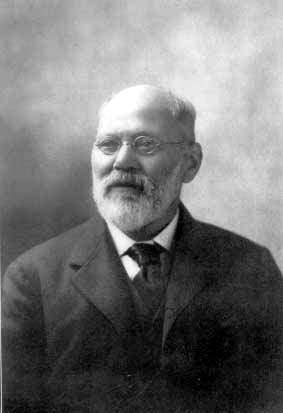
Michael Levi Rodkinson (1845-1904) was quite a character. The title of Marvin J. Heller's essay about him says plenty: "Michael Levi Rodkinson - The Life and Literary Career of a Jewish Scoundrel Revisited." A Jewish scoundrel! There's enough about him available online (you can start by googling [rodkinson +rohling +bloch]), so I won't get into that, but the point of this post is the great derision his "translation" of the Talmud received (according to JD Eisenstein "his" should be in quotes, too; he alleged that Rodkinson was such a lousy scholar that he engaged poor young men to translate it into Yiddish. He'd then tell them they did a lousy job, fire them without paying, and translated their translation into English).
In any case, he forever made his mark on history by his abridged translation of much of the Talmud, which can be read in its entirety here. A nice overview of the issues surrounding this translation can be read in Rabbi Adam Mintz's articles The Talmud in Translation and Words, Meaning and Spirit: The Talmud in Translation.
The Rosh Hashanah volume was published in 1895, and included the following letters and testimonials in the beginning:
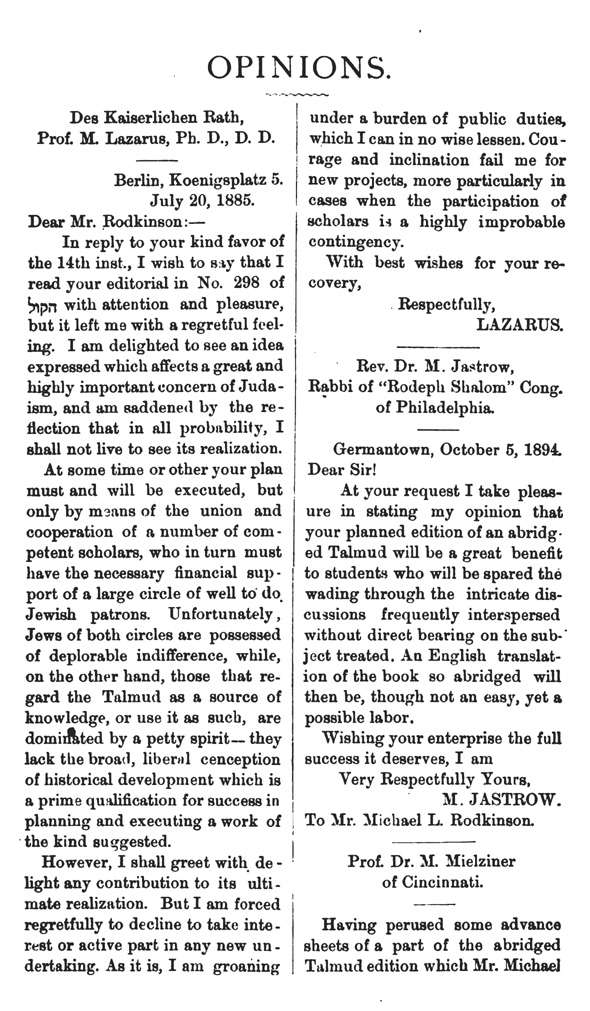










Having published two volumes, his work came in from some devastating critique from Kaufmann Kohler in the American Hebrew in 1896; one notes that he seems to use the Rodkinson Talmud as a cudgel with which to beat Isaac M. Wise with. Yet the critique is highly substantive, and gives us some memorable lines. Taking Rodkinson to task for the most absurd uses of modern terms to translate Talmudic expressions, he suggests that he may as well translate מעשה מרכבה as "Torah on bicycles!" Kohler notes that any child who knows the Pesach Haggadah will not translate "B'ne B'rak" as "the children of Barak":
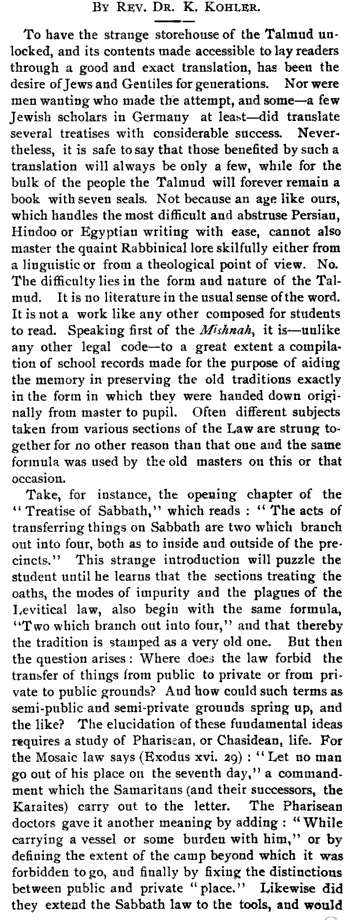
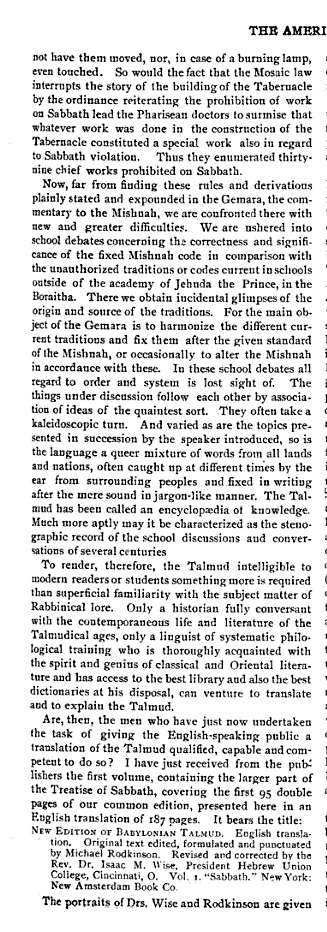
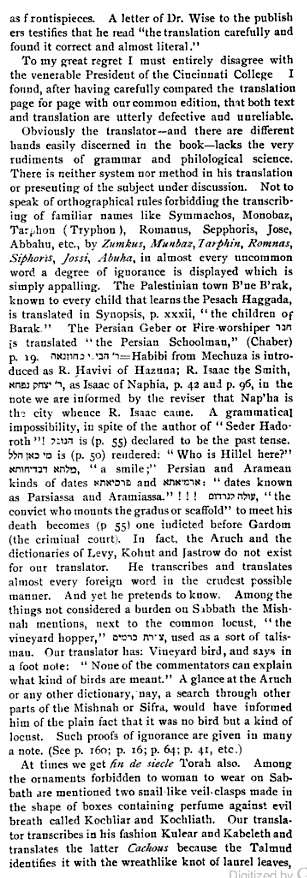
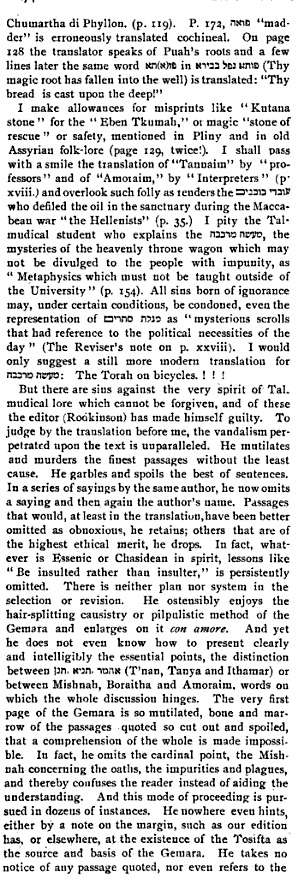

Kaufmann Kohler, incidentally, in his youth was a student of Rabbi Samson Rafael Hirsch. Like many a young man of his era, Rabbi Hirsch's influence kept him Orthodox. Until it didn't. In his 'Personal Reminiscences of My Early Life' he writes "My Arabic studies under Prof. Mueller in Munich at once undermined the exegetical system of S. R. Hirsch, built upon the assumption that Hebrew was the original language, and the philosophical and historical lectures I attended knocked the bottom out of his whole theology. I passed days and weeks of indescribable woe and despondency ; the heavens seemed to fall down upon me and crush me; and the strange tone of my letters puzzled my dear parents so as to make them suspect me of having fallen into bad company. I rallied strength and traveled to Frankfurt to lay my doubts and scruples before my revered teacher; but instead of having these satisfactorily removed, I received the remarkable answer: "My dear Kohler, he who wants to journey around the world must also pass the torrid zone; proceed and you will come back safely." I proceeded in my studies, but did not come back to where I started from. I only felt that having eaten of the thus long forbidden fruit from the tree of knowledge, my eyes opened and I was driven out of the paradise of my childhood. " Thus was made one of the great American Reform rabbis.
In any event Rodkinson lamely tried to reply:
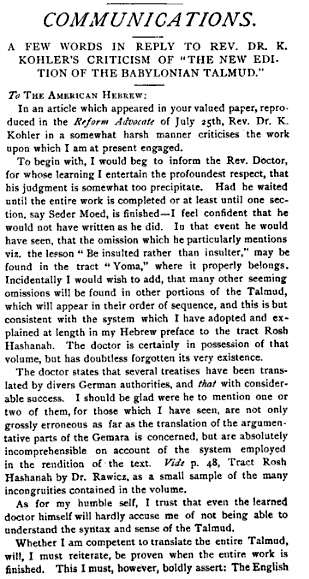
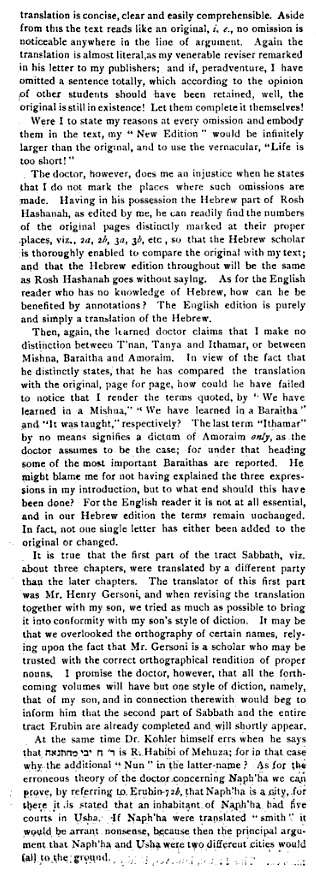
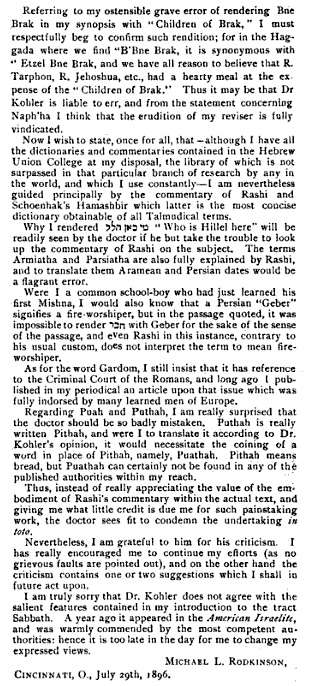
And Kohler replied to him:
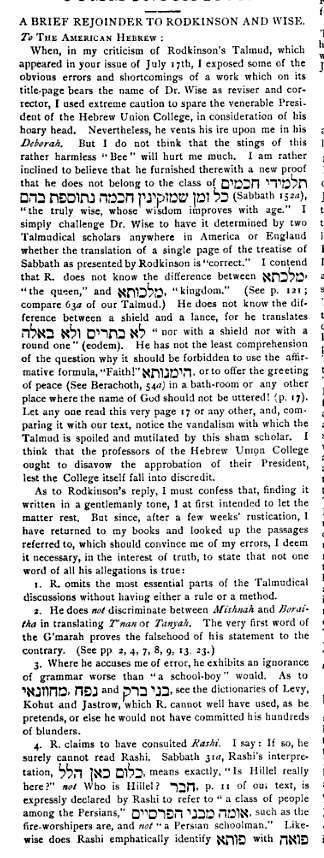
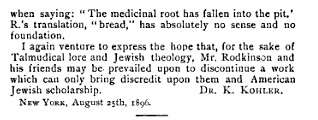
Immediately following Kohler's reply in the American Hebrew was a small piece which had appeared in the Jewish Chronicle of London on August 21, 1896, the original below:
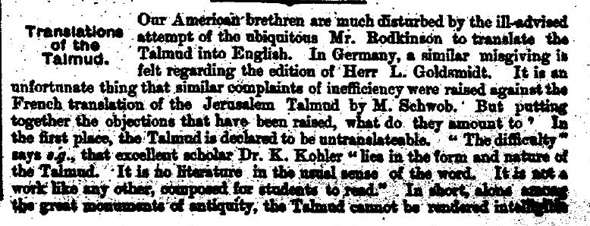
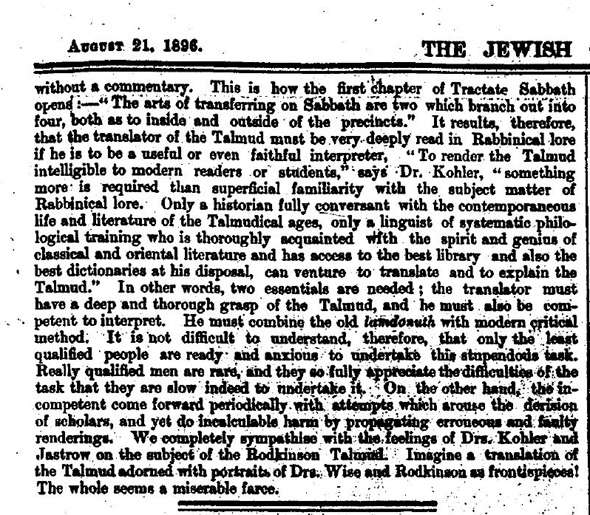
In 1897 the following appeared in the Jewish Chronicle's Books and Bookmen column (the entire series should be collected and published as a book):

And a note in the same column from 1895:
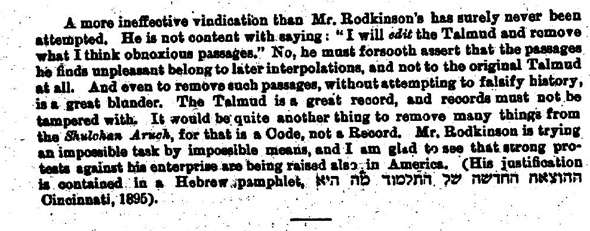
(The 1895 one was written by Solomon Schechter, the one from 1897 by Israel Abrahams. As you can see, Schechter has a problem with an abridgment of the Talmud per se, unlike Marcus Jastrow -- see below. Interestingly he chose to contrast the Talmud -- a record -- with the Shulchan Aruch -- a code -- of which an abridgment is appropriate [ala the Kitzur Shulchan Aruch]. In an early column in 1892, Schechter had taken Rodkinson to task for his book on Tefillin, 'History of Amulets, Charms and Talismans,' in which he asserted that the practice was dropped in the times of the later Amoraim, only to be resumed in the period of the Geonim in opposition to the Karaites.)
When he died in 1904 the nicest thing the Jewish Chronicle could say about him was that he was entitled to some recognition and that, well, his translation was a fait accompli.
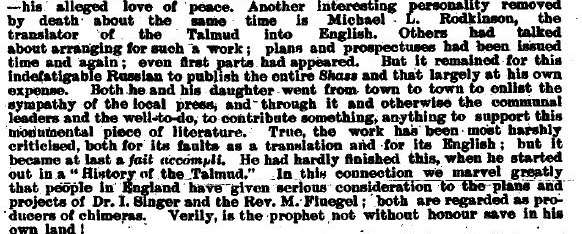

Here is J.D. Eisenstein's devastating (and delightfully interesting) review:
.
Here's a sample of his handwriting:

My thanks to my friend Wolf of Ishim Ve-shitos for sending me a letter of Rodkinson's to Steinschneider. I figure if anyone plans to post or publish it, it should be him. So all you get is this sample of his holy handwriting.
When all is said and done, I feel like he needs a sympathetic word so I'll have to think about that and perhaps produce a second part to this post.
See Manuscript Boy's post on Rodkinson's Talmud from 2006.
